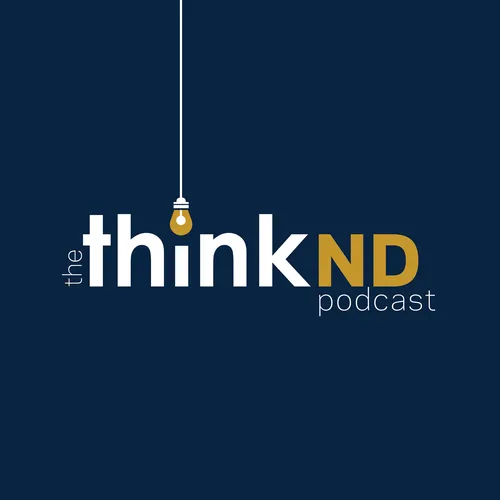FiresideND, Part 3: Fukushima - Resilience, Recovery, and Redemption
- Author
- Think ND - University of Notre Dame
- Published
- Sat 23 Sep 2023
- Episode Link
- None
Episode topic: Fukushima - Resilience, Recovery, and Redemption
On March 11, 2011, the Fukushima coastline in eastern Japan experienced a devastating triple disaster. A 9.0-magnitude earthquake, so strong that it shifted the earth’s axis, caused a tsunami that generated 50-foot waves. And even though the tsunami caused most of the 18,500 disaster-related deaths, the most globally recognized disaster is the nuclear meltdown of the Fukushima Daiichi Nuclear Plant, which led to the yearslong evacuation of 200,000 people in the region.
Even though these disasters occurred more than 12 years ago, their effects linger, and many people in Fukushima are still determining how to rebuild their lives.
In May, a Notre Dame research team of three faculty members, five undergraduate students, and an engineering alumnus visited Japan to examine resilience from multiple perspectives—business, engineering, culture, science, economics and more.
With sponsorship from the Liu Institute for Asia and Asian Studies, the team interviewed Fukushima residents who have returned to their homes; small business owners who are hoping to revitalize the area; mental health professionals who are helping families cope with the lingering trauma of the disasters; and many others who are invested in the renewal of the area.
The team also had the opportunity to tour the Daiichi Nuclear Plant, which is still in the process of being decommissioned, and the evacuation zone of abandoned homes, businesses, and communities.
Moderator:
- Michel Hockx, Director, Liu Institute for Asia and Asian Studies, Keough School of Global Affairs
Speakers:
- Jessica McManus Warnell, Rex and Alice A. Martin Faculty Director of the Notre Dame Deloitte Center for Ethical Leadership, Management & Organization Teaching Professor, Mendoza College of Business
- Noriko Hanabusa, Japanese Language Teaching Professor, Department of East Asian Languages and Cultures
- Robert Wachter '21, Assistant Consultant and Water Resources Engineer at civil engineering firm WSP USA
Additional Resources:
- John J. Reilly Center for Science, Technology, and Values
- Real Fukushima Tours
- Futubaya Ryokan
- article: Allan Njomo presents Fukushima research at the 31st annual Association for Practical and Professional Ethics International Conference
- Article: Winter session course focuses on Fukushima disaster and recovery
- Video: Anthropocene Lessons from Japanese History
Thanks for listening! The ThinkND Podcast is brought to you by ThinkND, the University of Notre Dame's online learning community. We connect you with videos, podcasts, articles, courses, and other resources to inspire minds and spark conversations on topics that matter to you — everything from faith and politics, to science, technology, and your career.
- Learn more about ThinkND and register for upcoming live events at think.nd.edu.
- Join our LinkedIn community for updates, episode clips, and more.
